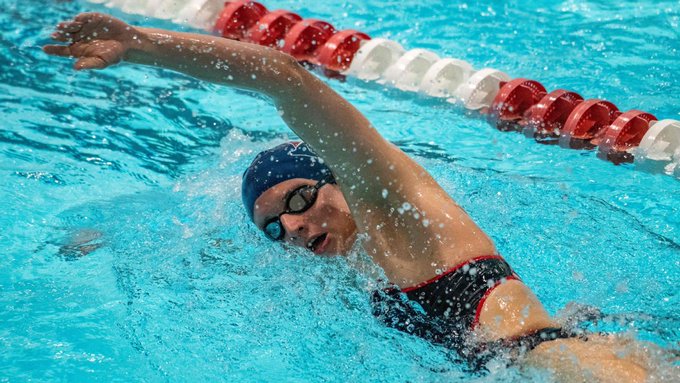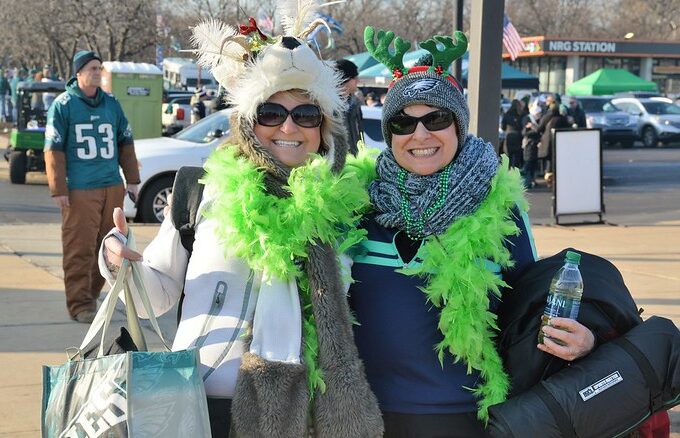
The Pennsylvania House of Representatives Tuesday approved a bill to prevent biological males from competing in sports with biological females. The measure, entitled the “Fairness in Women’s Sports Act,” passed in a 115-84 vote. It now heads to the Republican-controlled Senate, which is likely to adopt the measure, although Democratic Gov. Tom Wolf has signaled he would veto the proposal.
The bill defines “sex” as the “biological distinction between male and female based on reproductive biology and genetic make-up,” and it requires public schools and state and some private institutions to designate sports teams as male, female or coed. It also prevents “students of the male sex” from participating on teams and in sports “designated for females, women or girls.”
Wolf labeled the bill as “transphobic legislation,” tweeting that Republicans were “wasting time” attempting to pass the bill because it would not “get past my desk.”
The debate over transgendered athletes in sports came to a boil when UPenn swimmer Lia Thomas, who previously swam for the men’s team at UPenn, became the first transgender athlete to win an NCAA title, finishing first last month in the women’s 500-yard freestyle.
Dozens of states have pushed forward similar bans on transgender athletes competing in sports that they feel match their gender identities.
Proponents of the bill argue differences exists between men and women, giving transgender females advantages over biological females. They base assertions on some studies that show transgender women maintain athletic edges over biological females even after years of hormone therapy.
Critics of the legislation slammed conservatives as prisoners of the moment, relying on outlier examples, like that of UPenn swimmer Thomas, to promote the idea that transgender females “can decimate an entire league of women’s hard work and advancements,” as state Rep. Barbara Gleim, a primary bill sponsor, said during a House education committee hearing March 29.
Prior to its passage, Gleim slammed “false characterizations” in media of the bill as anti-trans and attacked Wolf’s “preference for woke ideology at the expense” of women.
In a release praising the vote, she said “inherent physical advantages” biological males have cannot be changed with hormone therapy.”
While CNN cited a 2017 report that found “no direct or consistent research” on any physical advantages, a report published last year in the British Journal of Sports Medicine examined differences in athletic performance that remained between transgender men and women in the Air Force even after years or hormone intervention, NBC News reported.
The researchers retrospectively examined medical records and fitness tests for 29 transgender men and 46 transgender women from 2013 to 2018.
They found trans women did 10 percent more pushups and 6 percent more sit-ups than cisgender counterparts for the first two years after starting hormones.
Those numbers dipped after two years, the researchers said, but 1.5-mile times for trans females at the same juncture were about 12 percent faster, the outlet reported.
At the same education committee hearing this month, state Rep. Martina White (R-Philadelphia) argued the legislation was needed to protect women under Title IX, a federal law passed in the 1970s that banned sex-based discrimination.
Lawmakers cited President Joe Biden’s executive order, issued earlier this year, banning discrimination based on sexual orientation and gender identity.
“They (males) have larger hearts and lungs, denser bones, stronger muscles, and generate more force in athletics,” White said. “These are all advantages that cannot be undone.”
White cited the potential for girls and women to miss out on scholarships to trans counterparts and dangerous situations that could arise in games, such as having to tag out trans girls running toward home plate in softball games. She called the potential for such collisions to be “life-changing.”
“Having separate teams for men and women is a time-tested way to ensure that women have an opportunity to showcase their talents and be champions,” White, a former athlete, said at the hearing. “We will not give up this fight. Nobody should be forcing biological females to compete against biological males. It is patently wrong and unfair. We will not permit anyone to chip away at women’s rights.”
Republican legislators cited “thousands” of cases of transgender athletes competing in sports across Pennsylvania, a figure that appears overblown, said Dr. Ron Kennedy, executive director at the Philadelphia Interscholastic Athletic Association’s District 3.
A former athletic director at Donegal High School in Mount Joy, Kennedy interviewed about a dozen trans athletes as part of his doctoral studies at Drexel University.
The bill, he said, targets a marginalized group of people whose suicides rates are already “off the charts.”
“Having a blanket policy, I don’t think, is the right thing to do,” he told Delaware Valley Journal in a recent interview. “You don’t become transgender because you want to win the 100-meter dash.”
“Who is it really gonna affect? I think that’s that the easy way out,” Kennedy said. “They’re making a policy based on the Lia Thomas [situation].”
Follow us on social media: Twitter: @DV_Journal or Facebook.com/DelawareValleyJournals of working families here in Pennsylvania and across the country.





